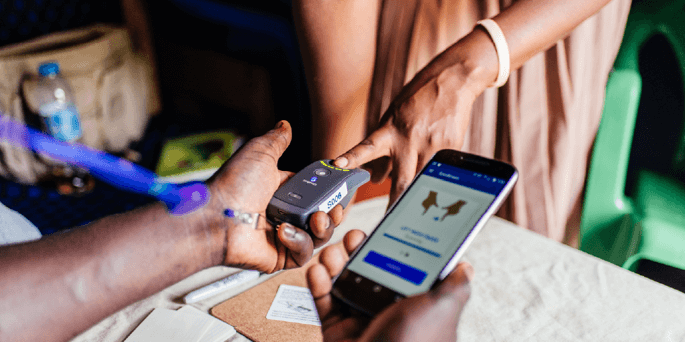Three years ago, the World Bank Group’s Identification for Development (ID4D) Initiative, a program that helps countries realize the transformational potential of digital identification, launched the Mission Billion Innovation Challenge (MBC) to crowdsource ideas to solve persistent challenges on this agenda. Innovators, non-profits, and government agencies around the globe submitted ideas, and the winners received funding and access to expert advice.
The theme of Mission Billion in 2019, its first year, was protecting privacy and empowering people to control their personal data. Meanwhile, the focus of the following year’s competition was on ensuring the accessibility of ID systems for vulnerable groups, such as marginalized women and girls and people with disabilities.
Fast forward three years. We interviewed two of the nine winners, the 2019 first prize winner Toby Norman, CEO of Simprints, and one of the 2020 winners Ibiyemi Ayeni, manager at Special Olympics Nigeria, to learn more about the impact of Mission Billion on their work.
Where is Simprints, the winner of Mission Billion 2019, today?
In 2019, the Mission Billion Challenge received over 170 proposals from 54 countries from academics, entrepreneurs, scientists, and technologists. The top prize went to the non-profit technology company, Simprints, which aims to provide safe, ethical, and inclusive solutions for global health and humanitarian aid that provide strong privacy protections for the most vulnerable people. The winning solution was an open-source toolkit that uses layered consent protocols during registration to help people provide meaningful informed consent through easy-to-understand yet nuanced messaging about how their data will be used.
“Mission Billion has helped us a lot in our journey to develop and standardize our layered consent protocols, which is a user-centric and easily understandable approach to help people provide informed consent,” said Toby Norman, citing the guidance and encouragement from the experts at the World Bank’s ID4D group. “After Mission Billion, we reached over 1.2 million more people with this much stronger approach and, perhaps more importantly, we’ve also open-sourced a lot of our learnings on the approach,” he said, adding that the information is available on their website for other programs grappling with the same challenges.
Where is Special Olympics Nigeria, one of the three Mission Billion 2020 winners, today?
In 2020, the competition received 370 proposals from academics, entrepreneurs, scientists, and technologists in 59 countries. One of the 2020 winners was Special Olympics Nigeria, whose solution sought to address the problems faced by persons with intellectual disabilities looking to obtain an ID.
“We were able to partner with the National Identification Management Commission (NIMC) in Nigeria to facilitate the registration of people with intellectual disabilities. We did this through, first, sensitizing them on the different disabilities...and how best to relate to people with intellectual disabilities so that [identification issuing officials] can be patient and tolerant towards this vulnerable group,” said Ibiyemi Ayeni, manager at Special Olympics Nigeria.
Ayeni noted that thanks to Mission Billion, they were able to work with NIMC to deploy mobile teams to communities of people with intellectual disabilities to facilitate their registration ahead of the Special Olympics. They have also been able to work within 25 local governments in Nigeria in this pilot phase with the goal of expanding.
“Special Olympics Nigeria has the intention to take this solution nationwide. We need to ensure that people with intellectual disabilities all over the country are registered and recognized in the national database. It is important for them to be able to access opportunities and services they need, just like everybody else,” said Ayeni.
Over the coming months, we will also be hearing from others who won the second and third prizes. As we learned from Toby and Ibiyemi, the progress of their ideas reflects the success and impact of the Mission Billion Challenge. We are looking forward to future challenges and new ideas.
Related:
Mission Billion
Identification for Development (ID4D)




Join the Conversation